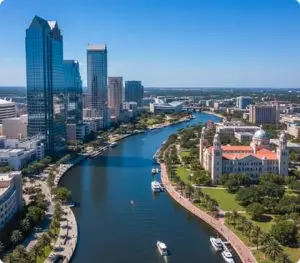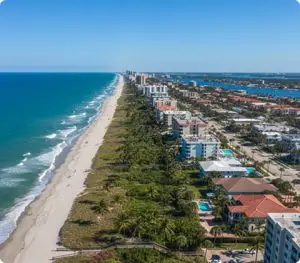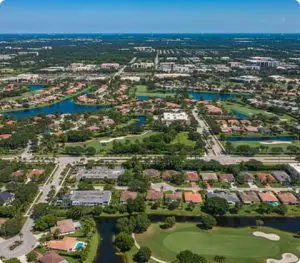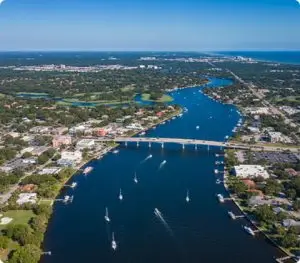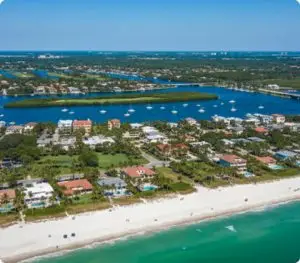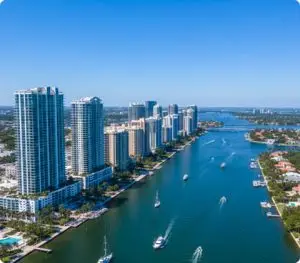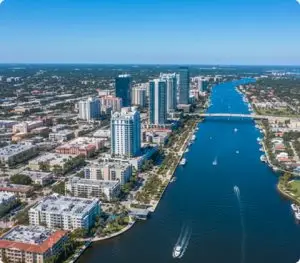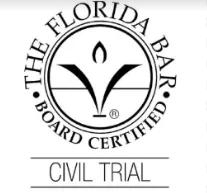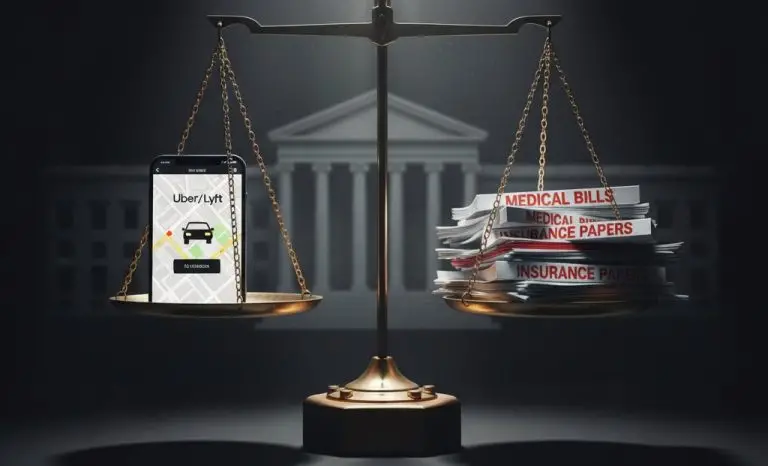
What to Do Immediately After a Rideshare Accident in Florida (Uber & Lyft)
Table of Contents
Uber and Lyft have made life easier for millions, yet it comes at a cost. An in-depth study by the Centers for Disease Control and Prevention (CDC) found that rideshare trips result in a 4.6 percent increase in the likelihood of seeing injury crashes take place.
If you get hurt as a passenger in a rideshare vehicle, the next steps you take could have a significant impact on the outcome of your case. Florida’s no-fault rules, rideshare-specific insurance, and the status of the app at the time of your accident can all affect your claim. Protecting both your health and your legal rights could help you walk away with compensation instead of losing out.
In this article, we will break down every step you should take and how a rideshare accident lawyer can help you maximize your chances of securing fair compensation.
Steps to Take After an Uber or Lyft Accident
After an Lyft or Uber accident, do not rely on the driver or the insurance company to protect your health and your rights. Take the following steps to give yourself the best chance of physical and financial recovery:
- Call 911: Florida state law requires that all crashes involving injuries, fatalities, driving under the influence (DUI), hit-and-runs, commercial vehicles, or more than $500 of damage be reported to the authorities. Calling 911 ensures that both the police and emergency medical services attend the scene. This means a police report will be created, and you can begin to receive the medical attention you need to strengthen your case.
- Request a police crash report: When the police arrive, inform them you are a passenger in an Uber or Lyft and identify the driver. Being in a rideshare at the time of the accident moves the accident into a different category under Florida law. The attending police officer is required to complete a Florida Traffic Crash Report, Long Form, for any accident that involves a commercial motor vehicle, which includes those operated by Uber and Lyft. The police report could form a crucial part of any resulting legal claim or lawsuit.
- Document the scene: If you are physically able, take as many photographs and videos of the scene as possible. Include shots of vehicle damage, the position of the vehicles, traffic signs, skid marks, weather, lighting conditions, and visible injuries. Also, photograph the driver’s license, plate, and insurance card of every driver involved in the accident.
- Capture app evidence: Whether the ride was in progress at the time of your accident could have a significant impact on your right to compensation. Take screenshots of the Uber/Lyft app, showing the driver’s name, vehicle, route, timestamps, and receipt. Also, save any in-app messages that could be relevant to your journey.
- Exchange information: This step needs to be handled with care. Tension will be running high, and other drivers and passengers will be eager to discuss who was to blame for the accident. Hold back from discussing the accident. Just focus on collecting the names, contact details, and insurance details of the other drivers if you have not already taken photos of the information.
- Seek medical care: Even if you feel fine or think you have escaped with only minor cuts and bruises, you must still seek urgent medical attention. To utilize Florida’s PIP benefits, you must seek medical attention within 14 days. In reality, the safest course is to get yourself checked out immediately and follow any recommended treatment to the letter. This can strengthen your case in showing that you did everything in your power to minimize your injuries and make a full recovery.
- Report the crash: Use Uber or Lyft’s incident reporting function in the app to start the process.
Why You Need a Rideshare Accident Lawyer
Rideshare accidents are complex due to the various insurance policies that may apply under Florida law. An experienced rideshare accident lawyer can help you unravel the following:
- Driver not logged in: If you were a passenger when the driver was not logged into the app, his or her personal auto insurance will apply.
- App on, but no ride accepted: Uber or Lyft’s auto insurance will typically function as a secondary coverage, with the driver’s own insurance being the primary.
- Ride accepted and passenger in the vehicle: Uber or Lyft’s auto insurance becomes the primary coverage. Florida requires transportation network companies (TNCs) like Uber and Lyft to have $1 million in coverage for death, injuries, or property damage.
These requirements underscore the importance of working with an experienced rideshare accident attorney who is familiar with the common tactics insurers use to avoid paying settlements.
One of the most common disputes is claiming a driver was not logged into the app at the time of the ride. Your lawyer may be able to use evidence from the Uber or Lyft app to prove that the driver was carrying out a qualifying ride when the accident happened, increasing your chances of a favorable outcome.
Entrust Your Rideshare Accident Case to Florida’s Premier Personal Injury Law Firm
If you have been injured as an Uber or Lyft passenger, do not let their insurance companies take you for a ride. Remember, insurers only care about paying you as little as possible.
The rideshare attorneys at Kogan & DiSalvo Personal Injury Law care only about getting the best possible settlement that allows you to move on with your life. Call us today to schedule a free consultation with our Florida rideshare accident lawyers who can plan your route to financial recovery.
 (800) 707-9111
(800) 707-9111
 Call
Call

